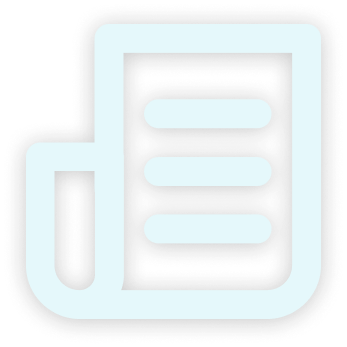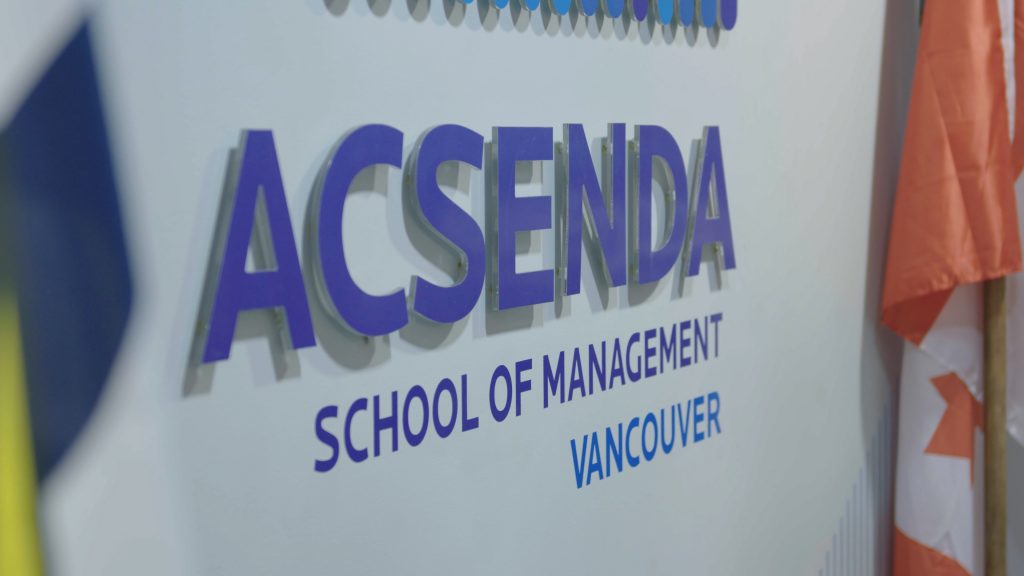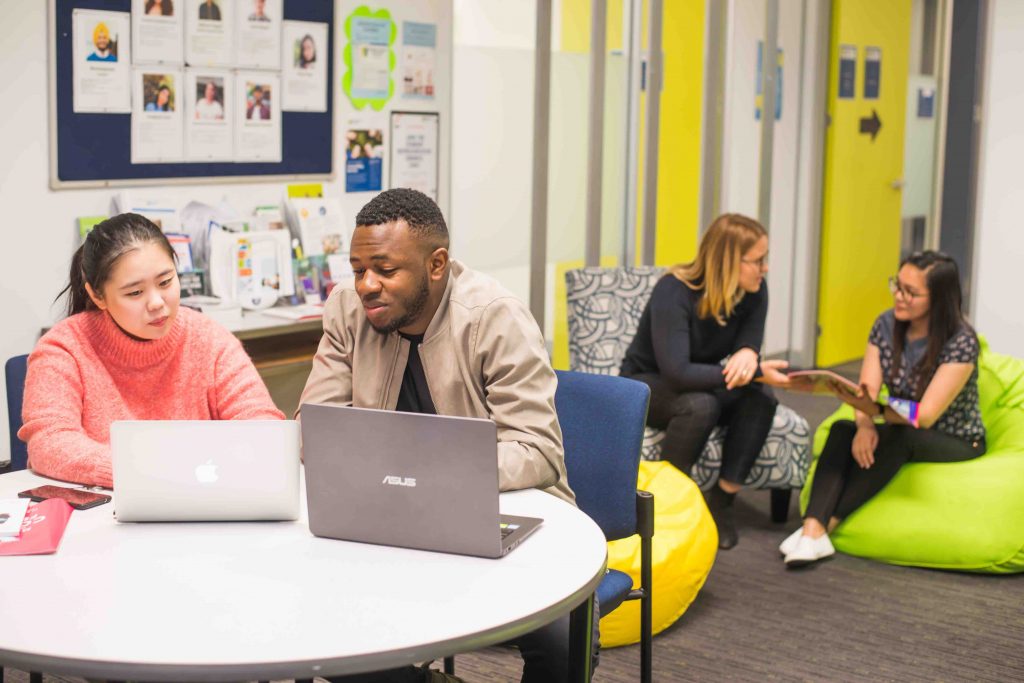News & events - Accelerate

News and events
Stay current with company news, find media resources and connect with our team.

How Acsenda handled the shift to blended learning
When COVID-19 hit Vancouver last March, Acsenda School of Management quickly adapted its teaching and services online, vacating the campus by month’s end. Acsenda’s rapid response to the pandemic was a result of its forward-thinking and long-going change management efforts through effective strategic planning.
Before COVID-19, Acsenda was predominantly focused on delivering a world-class learning experience in an in-person environment, with professionals and academics from all over Vancouver coming together to prepare international students for their future careers in Canada. As early as 2017, however, we were already assessing the possibility of incorporating online technologies for Acsenda’s future teaching and learning activities. In November 2019, a strategic technology plan was unveiled to map out a change management plan for 2020-2022.
This two-year change management plan was adapted into a two-day crisis management plan at the onset of COVID-19, but the pieces were already in place for Acsenda to respond swiftly and competently. Effective planning, supported by our culture of inclusivity, communication and transparency across all levels, minimised the financial and organisational impact of the pandemic, and it was a crucial win for the entire Acsenda community.
We did not rest on our laurels after that, though. We focused on our next challenge, which was setting up an online education that was comparable to the small classroom learning experience that Acsenda was known for. It was a challenge we were willing to face head on.
By introducing software and programs such as BigBlueButton and QLess, student information system upgrades, website and online event delivery capabilities, Acsenda created a digital ecosystem that offered an educational experience consistent with our motto, “International thinking. Individual focus.”
With attendance rates consistently over 90% over the past two terms, pass rates of over 94% and ‘very strong’ student satisfaction scores, Acsenda continues to provide an engaging learning experience, whether online or on-campus.
Last October, Acsenda students returned to campus for the first time since the beginning of the pandemic. With a hybrid teaching delivery, Acsenda has reduced the number of students on campus at one time, with class populations rotating weekly. The classrooms have been retrofitted with technological equipment, to integrate both groups studying on-campus and online each week. Acsenda has also implemented a range of health and safety measures including mandating the wearing of masks on campus.
New industry partnerships
Despite the pandemic, Acsenda has continued to be an institution that prioritises connecting people and professions, building long-lasting relationships with well-connected organisations in Canada and abroad. Acsenda has formed a partnership with the Canadian Institute of Traffic and Transportation, which will allow students to take electives that count towards a designation in supply chain and logistics.
Acsenda has also partnered with the American Society for Quality, a globally focused organisation with expertise in training certification and professional development for those interested in pursuing careers in quality assurance.
These are more ways that Acsenda is looking to grow long-term, positioning the institution as a leader in preparing international students for a professional career in Canada.
Social and civic engagement
Acsenda continues to be a part of the local community. Last September, Acsenda celebrated its fourth annual Shoreline Cleanup, an event where students, faculty and staff volunteer for environmental awareness and research.
Acsenda also participated in Orange Shirt Day, an event designed to commemorate the residential school experience for Canada’s indigenous population, to witness and honour the healing journey of the survivors and their families, and to commit to the ongoing process of reconciliation.
This term, Acsenda remains devoted to providing international students with the educational requirements to pursue a professional career in Canada. Through blended learning initiatives, relationships with regional organisations and emphasis on Canadian values, Acsenda students acquire the prerequisites needed to thrive in the global job market.
By Conley Mosterd
Conley Mosterd is Acsenda School of Management’s Communications Officer. He is responsible for managing Acsenda’s communications and lead generation strategies. In his spare time, he enjoys playing basketball, freediving and doomscrolling the New York Times mobile app.

Southern Cross University issues GTE and admissions guide for agents
Southern Cross University has introduced a quicker and more efficient way for education agents to determine entry requirements for its Melbourne, Perth and Sydney branch campuses by launching the Genuine Temporary Entrant (GTE) and admissions guidelines (GAG).
Education agents will find the guide useful in facilitating the GTE and admissions requirements of international students who wish to study at Southern Cross University Melbourne, Southern Cross University Perth and Southern Cross University Sydney. All they have to do is select the student’s country of origin and get a full lineup of the essential requirements.
“Each source country has its own unique set of guidelines. With the implementation of this tool, we will be able to provide clarity to Southern Cross University agents and prospective students in determining the applicable GTE requirements based on factors such as the applicant’s current location,” clarifies John Crowder, National Admissions Director.
Mr Crowder, however, qualifies that the GTE guidelines are just a guide and do not guarantee a visa outcome for the prospective student.
Prompt response and assistance from education agents
By zeroing in on the essential requirements that apply specifically to offshore and onshore applications, education agents will be able to assist and respond promptly to the needs of their prospective students.
Education agents who are assisting international students that are already in Australia can go directly to the requirements for onshore applicants. For those offshore, they can type their country of origin in the section provided and review the requirements that apply to them.
For international students coming from Nepal, for instance, they can type Nepal in the space provided and will then be presented with the basic details and requirements such as the (1) statement of purpose, (2) conditional offer, (3) documentation, (4) academic and (5) financial requirements, (6) minimum GTE requirements for pre-assessment and conditional offer, (7) specific GTE requirements, (8) IELTS or equivalent and (9) the maximum number of weeks required for the ELICOS pathway.

Southern Cross University offers new STEM-focused degrees
Southern Cross University Melbourne, Sydney and Perth campuses will be offering STEM-focused postgraduate courses beginning 2 March, the start of 2020 Session 1 intake. This development was confirmed by Ben McCully, Senior Vice President for Southern Cross University Partnerships.
The new postgraduate courses are the Master of Information Technology and the double degree Master of Engineering Management, Master of Business Administration. Each course can be completed in two years.
“This is in response to a growing demand for courses that will prepare the students to meet the needs of a rapidly changing technologically driven landscape,” Mr McCully reveals.
Students of the Master of Information Technology course are required to complete 16 units comprising eight core units (with one unit awarded a double credit point), five specialisation units and two elective units.
Those in the Master of Engineering Management, Master of Business Administration should complete 16 units comprising of seven engineering management units and nine business administration units.
The relevance of STEM-focused degrees
These are exciting times for students. Open to both IT and non-IT professionals, graduates of the Master of Information Technology will be in the forefront of transformations in technology and the way it impacts today’s communities from the simplest to the more complex functions such as biometric recognition, digital health monitoring, connectivity to the Internet of Things or cybersecurity and management of big data.
Students will gain the opportunity to experience Southern Cross University’s Digital Enterprise Lab through a variety of learning methods and actual industry projects. They will be given ample opportunities to learn and experiment using cutting-edge technologies in artificial intelligence, virtual or augmented reality and the Internet of Things with advanced coursework and real-world applications.

Engineers may possess exceptional technical knowledge but they could use the training in management and leadership which the Master of Engineering Management, Master of Business Administration course can provide. Students will be equipped to handle the challenges of a leadership position and advance their career in engineering management fields.
Completion of the engineering management course may count towards Engineers Australia’s continuing professional development requirements or accreditation in any other relevant professional organisation.
Career outlook for graduates
Graduates of the information technology course will have an opportunity to advance their careers in a variety of roles and apply their expertise in cybersecurity, software development, user experience and data analysis across all businesses and organisations.
Based on their specialisation, opportunities in advanced cybersecurity, big data analysis, computational intelligence and machine learning, computer forensics, internet engineering, pervasive and immersive user experience, programming for the internet of things, mobile and cloud systems will now be open to them.
Graduates of the engineering management course will have better career opportunities in leadership or senior roles such as an engineering manager, advisor, consultant or as a government planner in various engineering related industries.
Entry requirements
For the Master of Information Technology course, applicants should have completed a bachelor’s degree or equivalent in a related discipline, or possess equivalent relevant professional experience. Students with an IELTS score of at least 6.0 with no band less than 5.5 can apply for the course. Those who do not meet the academic and English requirements may be eligible for entry to the course through the Postgraduate Qualifying Program (PQP).
For the Master of Engineering Management, Master of Business Administration course, applicants should have completed a 4-year undergraduate degree in engineering or in a cognate discipline. Those with a 3-year undergraduate engineering degree or in a cognate discipline should present proof of at least two years of documented relevant work experience or demonstrated relevant prior learning and/or relevant industry experience equivalent to the undergraduate degree requirement. IELTS score should be 6.5 overall with no band less than 6.0 for any component.
| CRICOS | Annual Fees (2020) | Duration | English Requirement | Intakes | |
| Master of Information Technology | 0101721 | $32,400 ($4,050 per unit) | 2 years full-time | IELTS 6.0 | March, July, October |
| Master of Engineering Management, Master of Business Administration | 0101720 | $32,400 ($4,050 per unit) | 2 years full-time | IELTS 6.5 | March, July, October |
Scholarships may be available for both courses. Education agents may speak with their account manager or EduCo representative for details.

Return to campus protocols for Spring 2021
The Centers for Disease Control and Prevention (CDC) has issued an order for all travellers entering the USA to show proof of a negative test result for COVID-19 no more than three days prior to their flight. This order takes into effect on 26 January 2021, 12:01 AM EST.
Our U.S. partner institutions have been releasing important COVID-19 updates on their respective websites. We highly encourage you to visit the following pages to stay informed of campus safety guidelines and procedures in relation to COVID-19.
- Duke University’s COVID-19 updates
- Duquesne University’s COVID-19 updates
- Seattle Pacific University’s COVID-19 updates
- Stevens Institute of Technology’s COVID-19 updates
- University of Maryland, Baltimore County’s COVID-19 updates
- University of Nebraska–Lincoln’s COVID-19 updates.

Our students have thrived in 2020
2020 has its ups and downs, but we choose to celebrate the many ups that our students have accomplished at Southern Cross University. And they are poised to achieve more this 2021.
- Congratulations to Chavindhya De Silva for winning the International Student Table Tennis Championship 2020 last November! Chavindhya is an MBA student from the Perth campus.
- Two students have been placed in Web Developer and IT roles and commenced their internship this week as part of the Career Edge Program. Three other students have been interviewed by a host company and are waiting for feedback from their interviews. Two students have recently presented to host companies.
- 20 students across our Sydney, Melbourne and Perth campuses have signed up for the Business Hack, an important experiential module of the Career Edge Program. Only students who have completed Year 1 of Career Edge can access the Business Hack.
Students interested in the next sessions of the Career Edge Program may reach out to their campus Career Counsellor:
- SCU Sydney: yunyu.zhou@scu.edu.au
- SCU Melbourne: peta.lee-tobin@scu.edu.au
- SCU Perth: caroline.byrne@scu.edu.au
Finally, lectures and tutorials during Session 3 will remain online across our campuses. Students may visit the campus as long as it has been pre-arranged with a staff member. They are also allowed the use of computers, the photocopier and the library.

Nothing like seeing our students succeed
CIC Higher Education students really showed their determination to succeed despite the challenges of 2020. Satisfaction and overall engagement remained high over the past several months. Here are a few highlights:
- Students adapted well to online study and with our support and their dedication, 212 students have graduated recently
- The number of students on intervention due to course progress decreased
- Student satisfaction remained high at an average of 4.2 out of 5
- Pass rates increased by 5% and attrition decreased significantly across terms
- Students timetabled early each term, showing high levels of interest and engagement to continue their studies at CIC.

We continue to support new offshore students to commence their studies online. The two main criteria for doing so are that 1) the student has a visa granted and 2) has the competency to undertake studies online.
The Summer Term, which began on 11 January, is being taught online for everyone's health and safety. Term 1 begins on 22 March.
All offshore students wishing to commence online will need to undertake a competency interview with a CIC staff member to check that they can attempt online units. If you have any questions, please contact our Director of Admissions, Tim Costigan, at timothy.costigan@cic.vic.edu.au.